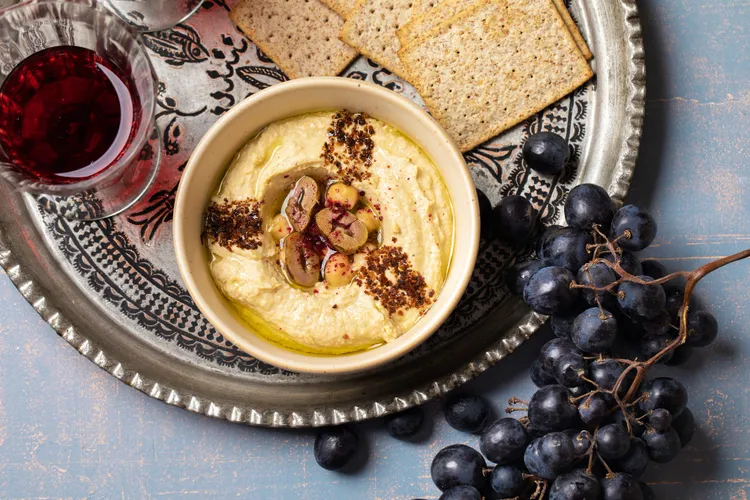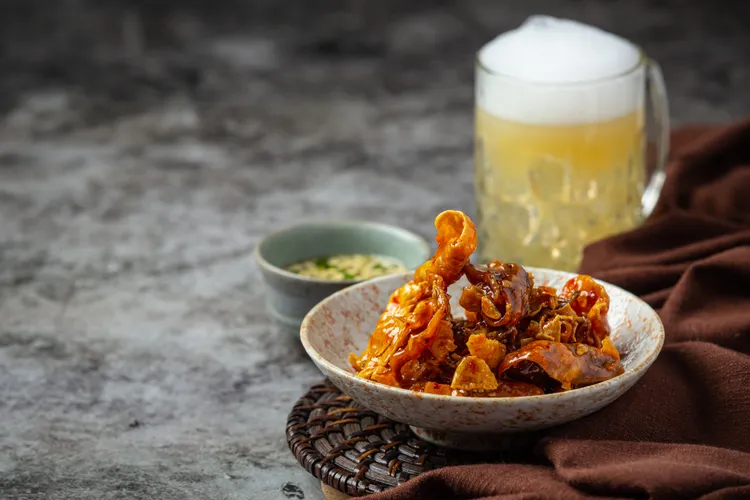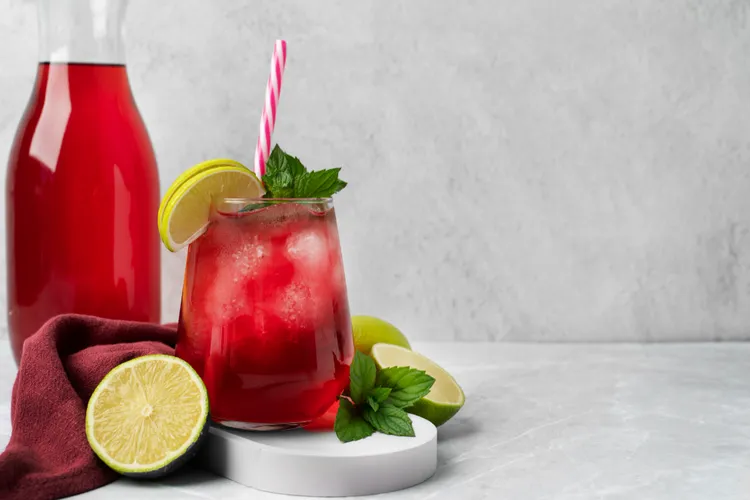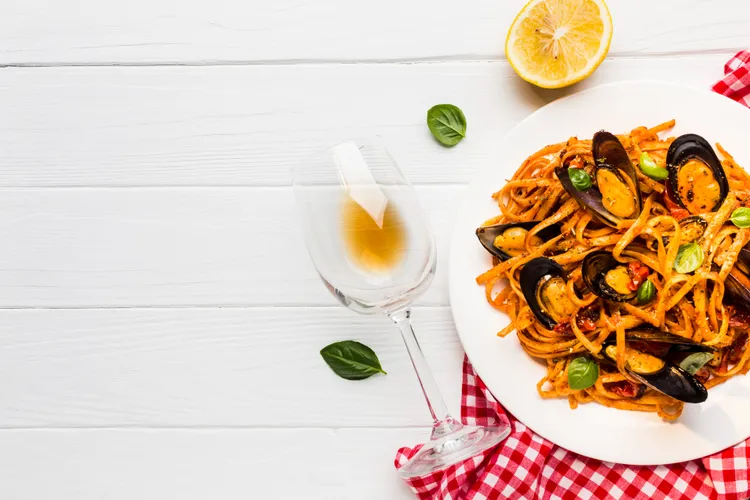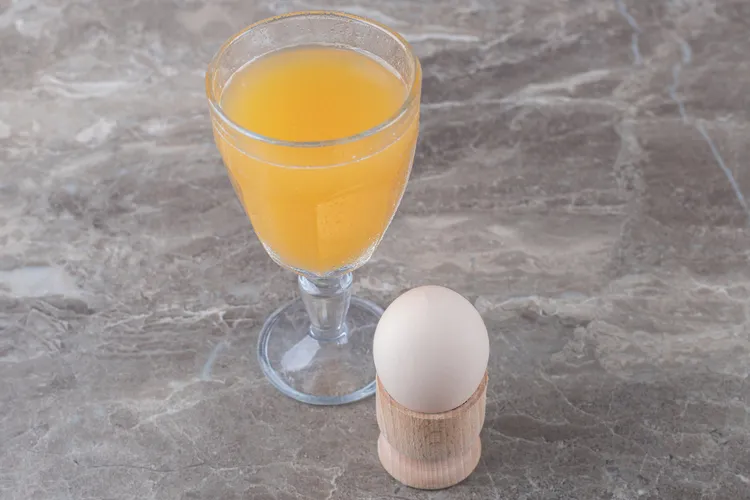Hidden Anxiety Triggers: Everyday Foods That Fuel Stress
Anxiety is a pervasive issue in modern life, affecting millions of people worldwide. While stress, genetics, and lifestyle factors are often discussed as primary contributors, one critical yet frequently overlooked factor is the food we consume daily. The connection between diet and mental health is becoming increasingly clear, with research revealing that certain foods can act as silent triggers for anxiety, subtly disrupting our mental well-being.

The Gut-Brain Connection: Why Food Matters for Anxiety
Before diving into specific foods, it’s essential to understand the gut-brain axis, the bidirectional communication network between your digestive system and your brain. The gut produces neurotransmitters like serotonin - about 90% of which is made in the gut - that regulate mood and emotional health. What you eat directly influences gut health, inflammation levels, and neurotransmitter production, all of which can impact anxiety.
Certain foods disrupt this delicate balance, causing inflammation, blood sugar spikes, or gut microbiome imbalances that send stress signals to the brain. These effects are often subtle, accumulating over time, which is why many people don’t connect their diet to their anxiety. Let’s explore the primary culprits.
- Sugar: The Sweet Saboteur
Sugar is ubiquitous in modern diets, hiding in everything from soft drinks to seemingly healthy granola bars. While it provides a quick burst of energy, sugar can wreak havoc on your mental health.
- How It Triggers Anxiety: Consuming high amounts of sugar causes rapid spikes and crashes in blood glucose levels. These fluctuations can mimic or exacerbate anxiety symptoms, leading to jitteriness, irritability, and difficulty concentrating. A 2019 study published in Medical Hypotheses found that high sugar intake is linked to increased inflammation and oxidative stress, both of which are associated with anxiety disorders.
- Hidden Sources: Beyond obvious sweets like candy and desserts, sugar lurks in processed foods like ketchup, salad dressings, and even “low-fat” yogurts. High-fructose corn syrup, a common sweetener, is particularly problematic due to its rapid absorption and impact on insulin.
- What to Watch For: Check ingredient labels for terms like sucrose, glucose, fructose, or maltose. Even “natural” sweeteners like honey or agave can cause similar effects if overconsumed.
Tip: Limit added sugars to less than 10% of your daily calories, as recommended by the World Health Organization. Opt for whole fruits, which contain fiber to slow sugar absorption, instead of fruit juices or sweetened snacks.
- Caffeine: The Double-Edged Stimulant
Caffeine, found in coffee, tea, energy drinks, and chocolate, is a staple for many. While it boosts alertness, it can also be a stealthy anxiety trigger.
- How It Triggers Anxiety: Caffeine stimulates the central nervous system, increasing heart rate and releasing stress hormones like cortisol and adrenaline. For those prone to anxiety, this can mimic or amplify panic-like symptoms, such as racing thoughts or a pounding heart. A 2020 study in Nutrients noted that high caffeine intake is associated with increased anxiety, especially in individuals with genetic predispositions to anxiety disorders.
- Who’s Most Affected?: Sensitivity varies. Some people metabolize caffeine slowly due to genetic factors, leading to prolonged effects. Even small amounts, like a single cup of coffee (about 95 mg of caffeine), can trigger anxiety in sensitive individuals.
- Hidden Sources: Beyond coffee, caffeine hides in energy bars, pre-workout supplements, and certain medications (e.g., headache remedies).
Tip: If you’re anxiety-prone, try cutting caffeine for two weeks to assess its impact. Switch to herbal teas like chamomile or peppermint, which have calming properties. If you can’t quit coffee entirely, limit intake to one cup (8 oz) in the morning and avoid it after noon to prevent sleep disruption, another anxiety contributor.
- Processed Carbohydrates: The Rollercoaster Effect
White bread, pasta, chips, and other refined carbohydrates are dietary staples for many, but they can destabilize your mood.
- How They Trigger Anxiety: Like sugar, processed carbs cause rapid blood sugar spikes followed by crashes, which can lead to feelings of unease, fatigue, or irritability. These foods also lack the fiber, vitamins, and minerals found in whole grains, which support stable energy and mood. A 2018 study in The American Journal of Clinical Nutrition linked high-glycemic-index foods (like refined carbs) to increased risks of depression and anxiety.
- Why They’re Problematic: Processed carbs are quickly digested, offering little satiety and prompting overeating, which can further disrupt blood sugar and mood. They also contribute to inflammation, a known factor in mental health disorders.
- Common Culprits: Breakfast cereals, white rice, bagels, crackers, and pastries are prime examples.
Tip: Swap refined carbs for complex carbohydrates like quinoa, brown rice, or sweet potatoes. These release energy slowly, stabilizing blood sugar and supporting serotonin production. Pair them with protein and healthy fats for balanced meals.
- Artificial Sweeteners and Additives: Chemical Chaos
Artificial sweeteners like aspartame, sucralose, and saccharin are marketed as healthier alternatives to sugar, but they may come with hidden mental health costs. Similarly, food additives like MSG (monosodium glutamate) and artificial colors can affect sensitive individuals.
- How They Trigger Anxiety: Artificial sweeteners can disrupt the gut microbiome, which plays a critical role in mood regulation. A 2021 study in Frontiers in Psychiatry suggested that aspartame may interfere with serotonin and dopamine production, potentially increasing anxiety. MSG and certain food dyes (e.g., Red 40) have been linked to hyperactivity and mood disturbances in some studies, particularly in children and sensitive adults.
- Where They Hide: Diet sodas, sugar-free gum, processed snacks, and even some medications contain artificial sweeteners.
Tip: Choose whole, unprocessed foods to avoid process additives. If you need a sweetener, try small amounts of natural options like stevia or monk fruit extract, but use them sparingly.
- Alcohol: The Temporary Escape
Alcohol is often used to “take the edge off,” but its calming effects are fleeting and can backfire.
- How It Triggers Anxiety: Alcohol disrupts neurotransmitter balance, particularly GABA and glutamate, which regulate anxiety. While it may initially relax you, it can lead to rebound anxiety as its effects wear off, especially after heavy drinking. Chronic alcohol use also depletes B vitamins, which are crucial for stress resilience. A 2022 study in Alcohol and Alcoholism found that even moderate drinking can increase anxiety symptoms in some individuals.
- Additional Risks: Alcohol disrupts sleep, a major anxiety trigger, and can exacerbate dehydration, further stressing the nervous system.
Tip: Limit alcohol to one drink per day for women or two for men, as per dietary guidelines. If you notice anxiety spikes after drinking, consider cutting back or eliminating it. Stay hydrated and prioritize sleep to counteract alcohol’s effects.
- Trans Fats and Unhealthy Oils: Inflaming the Brain
Trans fats and certain vegetable oils (e.g., soybean, corn oil) are found in fried foods, margarine, and many processed snacks. These fats can silently contribute to anxiety.
- How They Trigger Anxiety: Trans fats and omega-6-rich oils promote inflammation, which is strongly linked to anxiety and depression. A 2020 review in Brain, Behavior, and Immunity highlighted how pro-inflammatory diets disrupt the gut-brain axis and increase anxiety risk. These fats also displace healthier omega-3 fats, which are critical for brain health.
- Common Sources: Fast food, packaged baked goods, and non-dairy creamers often contain trans fats. Many restaurant foods use cheap vegetable oils high in omega-6s.
Tip: Focus on healthy fats like olive oil, avocado, nuts, and fatty fish (rich in omega-3s). Read labels to avoid “partially hydrogenated oils,” a key source of trans fats.
- Gluten and Dairy: Hidden Sensitivities
For some individuals, gluten (found in wheat Wrapping up, it’s clear that the foods we eat every day can have a profound, often silent, impact on our mental health. Sugar, caffeine, processed carbs, artificial additives, alcohol, trans fats, gluten, and dairy can all act as stealthy triggers for anxiety by disrupting blood sugar, inflammation, gut health, or neurotransmitter balance. The good news? You have the power to take control by making mindful dietary choices.
Practical Steps to Reduce Anxiety Through Diet
- Prioritize Whole Foods: Build meals around vegetables, fruits, whole grains, lean proteins, and healthy fats to stabilize blood sugar and reduce inflammation.
- Test for Sensitivities: If you suspect gluten or dairy triggers anxiety, try an elimination diet for 2-4 weeks, then reintroduce foods one at a time to identify culprits.
- Limit Stimulants: Gradually reduce caffeine and alcohol, replacing them with calming alternatives like herbal teas or sparkling water with lemon.
- Read Labels: Avoid hidden sugars, trans fats, and artificial additives by checking ingredient lists on packaged foods.
- Support Your Gut: Incorporate probiotic-rich foods (like yogurt or kefir, if not dairy-sensitive) and prebiotic fibers (like asparagus or onions) to nurture a healthy gut microbiome.
- Stay Hydrated and Balanced: Drink plenty of water and aim for balanced meals with protein, fiber, and fats to prevent blood sugar swings.
- Consult a Professional: If anxiety persists, work with a dietitian or functional medicine practitioner to identify personal triggers and optimize your diet.
By rethinking what’s on your plate, you can take a significant step toward calming your mind and body. Food isn’t just fuel - it’s a powerful tool for mental health. Choose wisely, and your brain will thank you.




